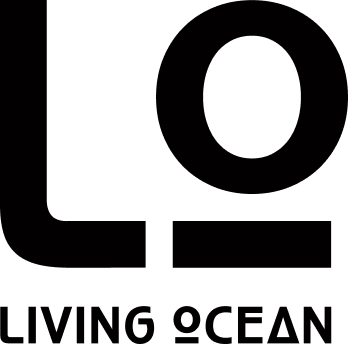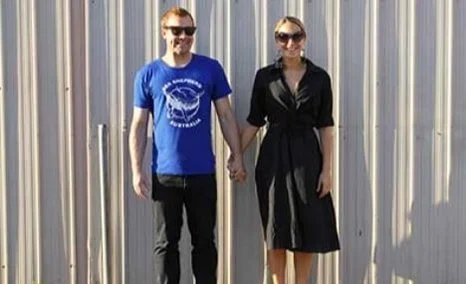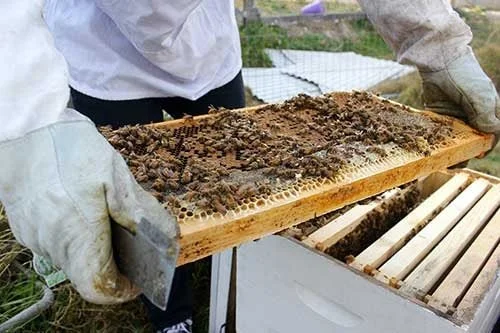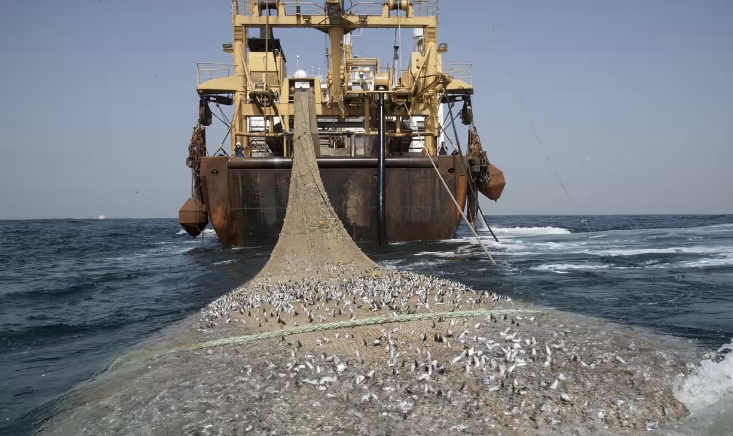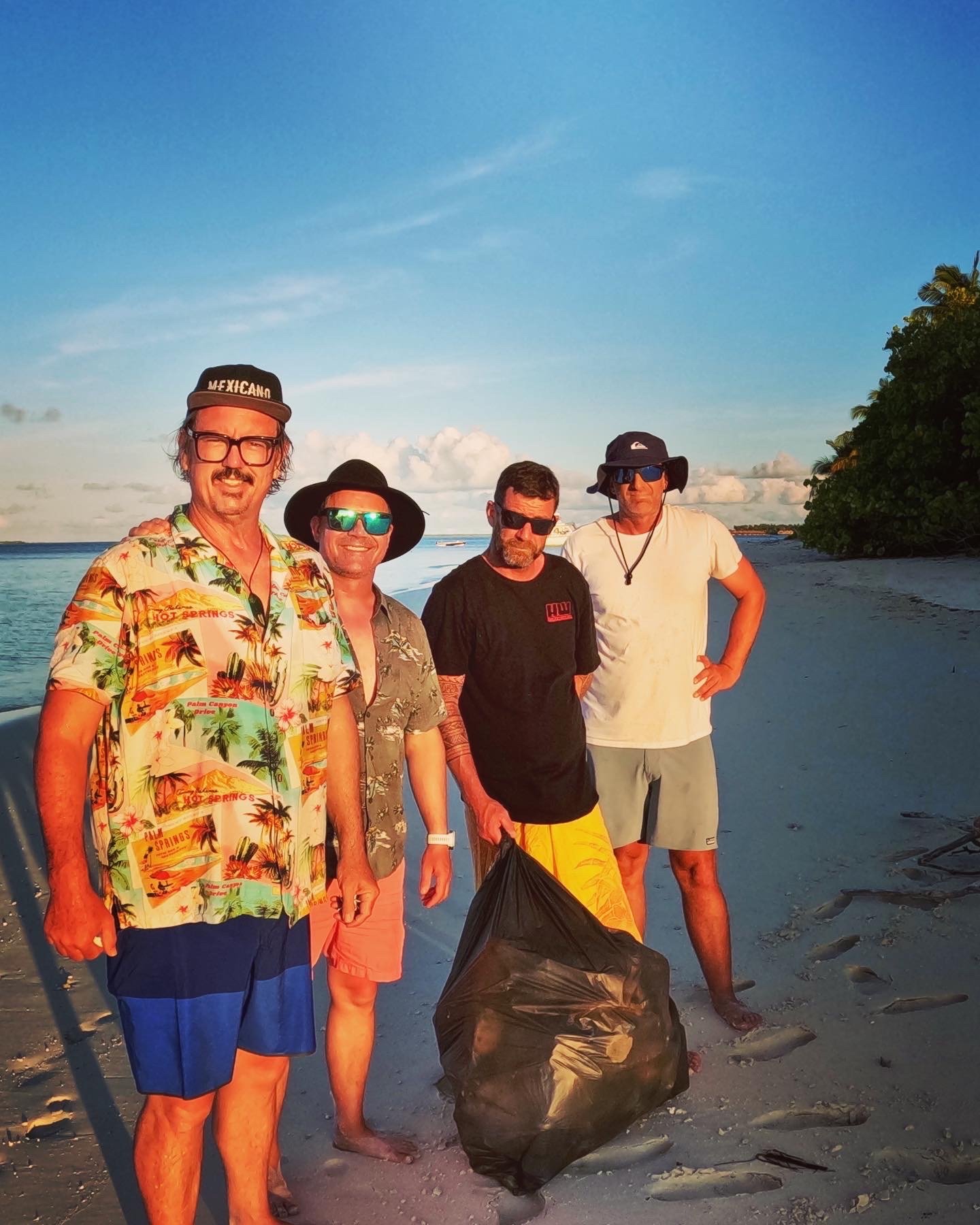Careel Bay Honey Company
I visited these two on a warm Saturday afternoon in August at the home of their beehives in Warriewood on Boondah Rd. We had so much to chat about that I will post an additional interview with Alex on her endeavour to promote op shopping and the reuse of clothing.
Meet the couple behind Careel Bay Honey Company, Joel Seaton and Alex van Os. In between Joel completing his Masters in primary school teaching and Alex working as a fashion stylist, this awesome duo has turned their bee keeping hobby into a business.
If you are unfamiliar with this local honey company waste no time in checking out their delicious produce. Not only does their honey taste ridiculously good, but they run their business with as light a footprint as possible. Moreover, how can we not support a business that is contributing to our local food security!
Northern beaches born and bred, Joel and Alex are passionate about sustainability and preserving the environment that they have grown up in. This passion extends to their lifestyle and career decisions. Interviewing them has further inspired me to make small impactful changes in my daily living. They definitely live what they preach and it doesn’t hurt that they look so cool while doing it!
I visited these two on a warm Saturday afternoon in August at the home of their beehives in Warriewood on Boondah Rd. We had so much to chat about that I will post an additional interview with Alex on her endeavour to promote op shopping and the reuse of clothin
How did you first get into bee-keeping?
I was flying for regional express and I was down at Aubrey and visited Beechworth Honey. They have an amazing setup, with hives and a museum and by chance I met the owner who chatted with me about bee-keeping. Since childhood I’ve always been interested in bees and during the visit I just thought, I can do this. So I went and joined North Shore Bee Keepers Club with a mate of mine. The guys are in their 70s and 80s and have a wealth of knowledge. I have learnt so much from them. So bee keeping started as an interest and went from there. We’ve got a couple of hives up at Careel Bay at my parent’s place and then we set up here at Warriewood.
How has sustainability come about with your business, was it a conscious decision?
It’s an ethos. It’s not all about the honey. For us it’s the educational side of it. Bees are such a crucial part to agriculture. If all our bees are wiped out a third of our agriculture disappears; things like, apples, almonds, blueberries, watermelons, cherries, pumpkins, cucumbers… all these different fruit and vegetables would not exist. People need to realise that. When I read up on the science of it and saw what has already happened overseas, I was inspired to promote awareness of how crucial bees are. Australia is believed to be one of the only Varroa mite free zones left in the world. This is pretty significant given that this parasite is one of the main contributors to the worldwide decline of the bee population.
Selling the honey is one side of it. But the educational side is really important too. So we take groups through [the hives] and I am going to start doing educational sessions this year with school children, so taking bees into the classroom, teaching students about them and how crucial they are to our livelihood.
Local nurseries, flowering gardens and backyard fruit and vegetable patches, benefit from our bees. It is so evident you need the pollinators for plants to prosper. Even with all these other techniques, such as hand pollinating, nothing compares to natural pollination by insects
What are your thoughts on the new flow hives set to be released soon?
It is all plastic based. Traditional bee Keepers are wondering if bees will take to the frames as much. Our frames are all wax as you saw, but the flow hive frames are plastic, it’s a foreign body and not natural. It’s divided the bee keeping world. The modernists think its going make things easy; but there is so much more to maintaining a hive then just turning on the tap. The same pollen would be coming in, but it’s a different hive environment. If you look at the hives with a thermal camera at night, you can see a ball of heat being emitted from the hives. The bees keep the hives at 34 degrees. Flow Hives are arriving in November, and there are already cheap spinoffs that don’t necessarily use food safe plastic.
Do you think the local consumers are responding to your effort to make your business and product more sustainable?
Yes, definitely. We have tried to connect with people through markets, rather than trying to expand and sell bulk honey. It’s a seasonal thing, it happens from Spring through to Autumn and when people understand this and are educated about it and see the little initiatives we are doing, they appreciate it more. We welcome people to come down and have a look at the hives and check them out. By connecting with it in that way they realise, wow, this is pretty cool. The honey comb you are eating is made from the environment around you, you are chewing on the pollen and nectar from local plants! There is a massive trend where people now want to know where their food comes from and have a greater connection with their food. People support the fact that we are thinking bigger picture. As I said before, its not just about selling honey, it’s about realising what an important insect bees are for life on earth.
Being in this business, has it changed the way you think about sustainability within your own lifestyle.
Most definitely, especially Alex, I have opened a can of worms with her. We are a lot more in touch with the seasons and the environment and we now think about things a lot more. We don’t shop that much at Woolworths or Coles anymore. We try and go to farmers’ markets. We appreciate stuff more, we are more prepared to pay because we know the effort and time it takes to do stuff. We would rather spend more money and get a good product that you know people have put actual effort into and who are making effort to run their business more sustainably.
We are also trying to be more conscious about our plastic usage. I lived in Adelaide for a year, and down there they are plastic bag free. Initially I found it inconvenient, but then it becomes habitual. We now have our bags permanently in the back of the car and we make sure put them back after use so we always have them on hand.
In addition to supporting local producers and using reusable shopping bags, how else do you think Northern Beaches residents can commit to sustaining our local environment
Not overdeveloping is a big one. If you go down the street here you will find a Meriton block of apartments, the only place in Pittwater with a four storey residential development. Slowly bit by bit the council is selling off the land and the developers are creeping further down the road.
This land here that we keep the bees on, the owners were being told that it would be re-classified as unused. When they develop an area, they have to off set it with playing fields. So if they can turn this block that we are on into a playing field, then they can build a large residential development next door. The owners have a real connection with the land and the place. They don’t want the developers to win. So we have a mutually beneficial agreement with them, as they needed some form of private produce to show that they are using the land. You look at Google Earth, that whole area up the back of Warriewood was swamp and natural wetlands, and it’s all being carved up.
On the flip side of high-density living, there is a sense of privilege in this area, where we all want to live in massive houses that have massive carbon footprints, and drive a big car (that can transport way more people in them than we actually do) and have the latest greatest fashion and technology. The amount of energy we use to heat and light up these houses is ridiculous and we could all get better with carpooling and using public transport. We get so caught up in the need to constantly update things unnecessarily, our phones, cars, technology. It is so ingrained into us. We are causing so much wastage. I was like that, constantly moving on to and purchasing the next thing. I stop myself now and think, do I actually NEED it. Do I NEED the next updated version? And more often than not, the true answer is no. So I don’t buy into it. 🐋
For more information on Careel Bay Honey and for purchasing enquiries, visit www.careelbayhoney.com.au

